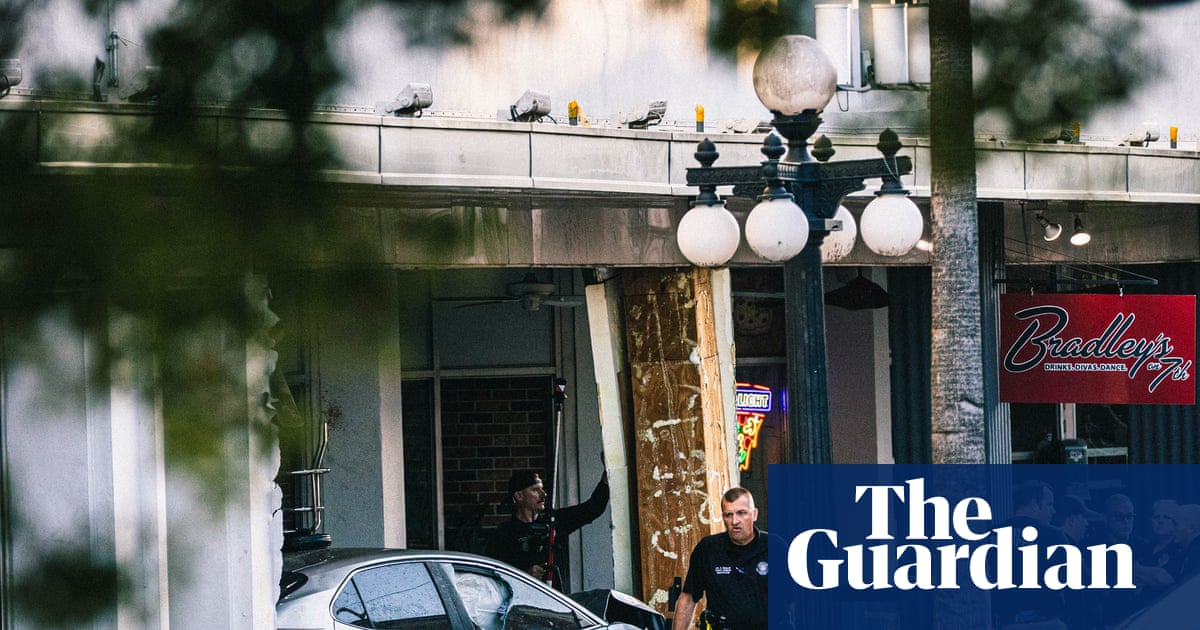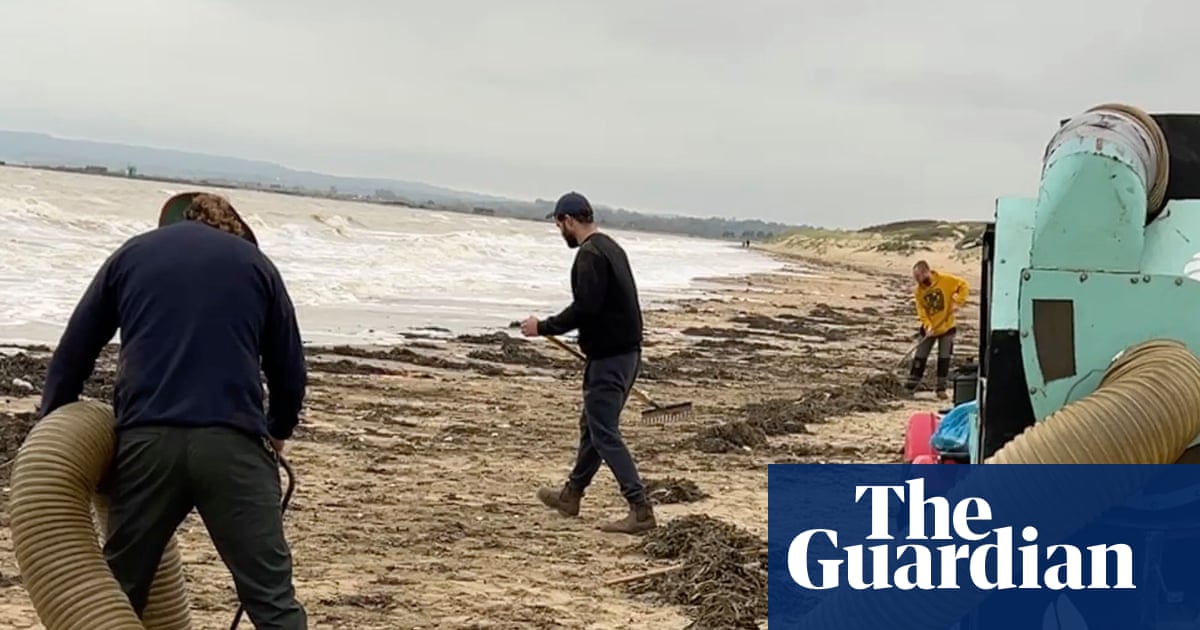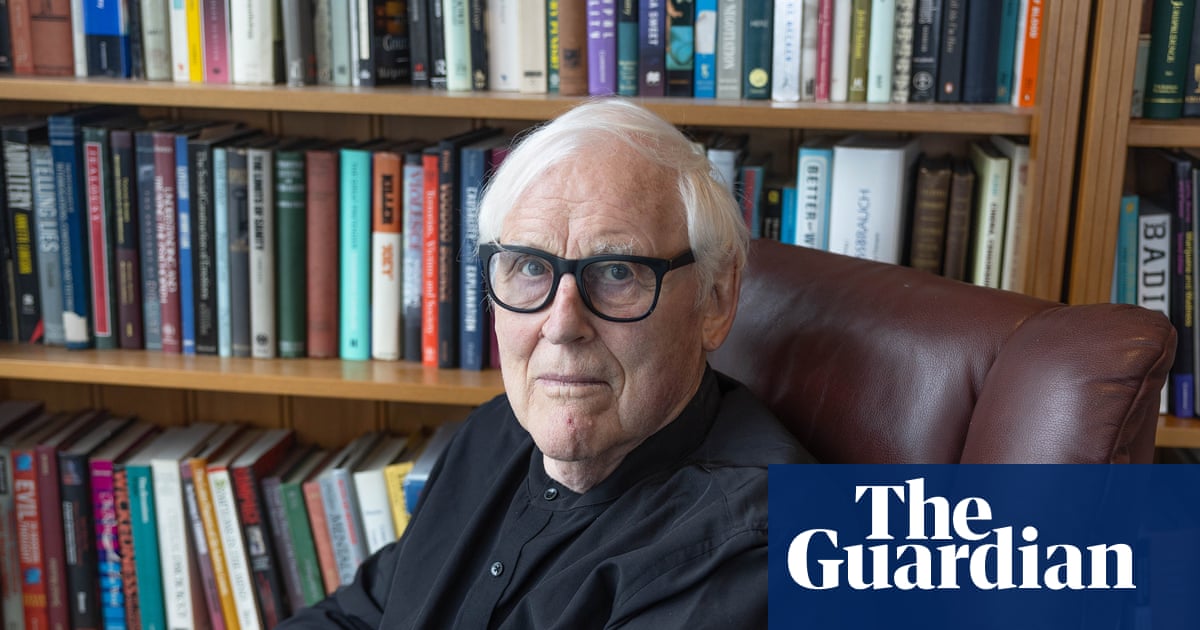‘My love for my mother is like an axe,” the narrator of Deborah Levy’s 2016 novel Hot Milk tells us. “It cuts very deep”. Set in the Spanish coastal city of Almería, the book – which has now been made into a film starring Sex Education’s Emma Mackey – is a sun-drenched unravelling of a daughter tethered to her ailing mother.
Hot Milk fits into a growing canon of literature exploring the absent, or fading, or otherwise inaccessible mother – stories in which the maternal figure is pulled to the edge of the frame, so that the daughter can take centre stage. Books such as Gwendoline Riley’s My Phantoms and First Love, both featuring mother-daughter relationships marked by emotional distance and strained communication. Or The Lost Daughter by Elena Ferrante, where the protagonist, Leda, is both unseen daughter and deserting mother, a collision that unleashes emotional chaos.
That writers slip into the narrative reflex of the mother as too powerful or too central to allow for a character’s development is revealing. Space must be cleared for the daughter to suffer, individuate and grow. Yet, these novels also show that we never fully cast our mother out. She remains at the edges of our identity, both threat to the self and origin.
Hot Milk – adapted for film by Rebecca Lenkiewicz and released in the UK last month – follows Sofia and her mother, Rose, as they travel to Spain in search of a cure for Rose’s unexplained paralysis. In the novel, Sofia seems to inherit her mother’s pain: “Sometimes, I find myself limping,” she says. “It’s as if my body remembers the way I walk with my mother.” She experiences psychosomatic symptoms mirroring her mother’s sickness, and must break free from her mother’s feigned helplessness in order to discover her own body, her own desires.

But what is most poignant is that Levy, whose works refuse sentimental arcs, shows us that this separation isn’t always clean cut. It can sometimes be a feverish drift. Sofia’s freedom is not triumphant, but strange and unstable. Levy doesn’t promise that separation brings clarity, rather she suggests it may bring vertigo. And few stories succeed in making this psychological umbilical cord feel more real.
In my own novel Selfish Girls, we see three women trying to be daughters but also yearning to be free. To adequately write about this tension, I first needed to interrogate why the absence of the mother makes for such compelling storytelling. Why do we keep circling it, again and again? The opacity comes from cultural contradiction: motherhood is revered as sacred and essential, and yet mothers themselves are often invisible or misunderstood. A mother will always be defined by her absence because she will never fully be there – or never as you need her to be. Then there’s the strange ache of it: that in her presence, our mother remains unknowable. She is the most familiar stranger we’ll ever love, and that is narrative gold. “The hardest things to talk about are the ones we ourselves can’t understand,” writes Ferrante in The Lost Daughter. Subtext is the pressure point where literary complexity builds: “Who was my mother, really?” becomes the story engine.
My own mother was this impenetrable mystery I needed to let go of in order to become myself, but she was also someone so close, whose laugh carried through my own, whose image I caught glimpses of in my own reflection. In some sense, my novel is a reckoning of wanting to truly understand her at the same time as I am detaching, getting married, assuming my own family unit and moving to another country, putting an ocean between us. Idolising and rejecting her all at once. Perhaps there is ambivalence and guilt for stepping away, tangled with the quieter grief and shame of feeling I’d been left long before. Maybe the act of writing offers a way back into those unknowns of deep love and resentment, trying to shape them into something I could live with – a story of my own, without losing the parts of my mother that still mattered.
Riley captures this bind with razor-sharp realism and cool, clipped colloquialism in First Love. Neve receives a text from her mother: “CUT ALL MY HAIR OFF DO YOU WANT BOBBLES AND BRUSHES ETC. MUM.” It has to be wheedled out of her that she is, in fact, going through a tough time having broken up with her boyfriend. With pitch-perfect humour, Riley captures the apparent availability of the mother against a background of emotional absence. Neve recalls visits or phone calls with her mother characterised by awkwardness and superficiality.
The protagonist in My Phantoms echoes this: “She asked questions she didn’t want answers to, and gave answers no one had asked for”. For Riley, the maternal relationship is a tug-of-war between performance and authenticity. The mother’s presence feels like a performance of motherhood only – all form, no feeling – leaving the daughters deeply isolated in their company. You see, it is not enough for our mother to simply be a mother; she must embody the right kind of motherhood.
after newsletter promotion
In her lecture titled Motherhood Today, philosopher Julia Kristeva references the “good enough mother”, a term coined by the British psychoanalyst Donald Winnicott. “The ‘good enough mother’ would be she who knows how to leave to make room for pleasure, for the child, for thought. To leave room, in other words, to disappear.” To withdraw just enough so the child can emerge as a self.
Levy, Riley and Ferrante are trying to do on paper what we can never quite do in life: allow the mother to live fully inside our skin as a presence absorbed. In Hot Milk, Levy doesn’t resolve the mother-daughter bind, she lets it linger in the body – a felt, inescapable inheritance. Perhaps these stories don’t offer catharsis, but do something braver: let the mother remain inside the daughter, not as obstacle or ideal, but metabolised as a presence the self must grow around.

 3 months ago
116
3 months ago
116

















































